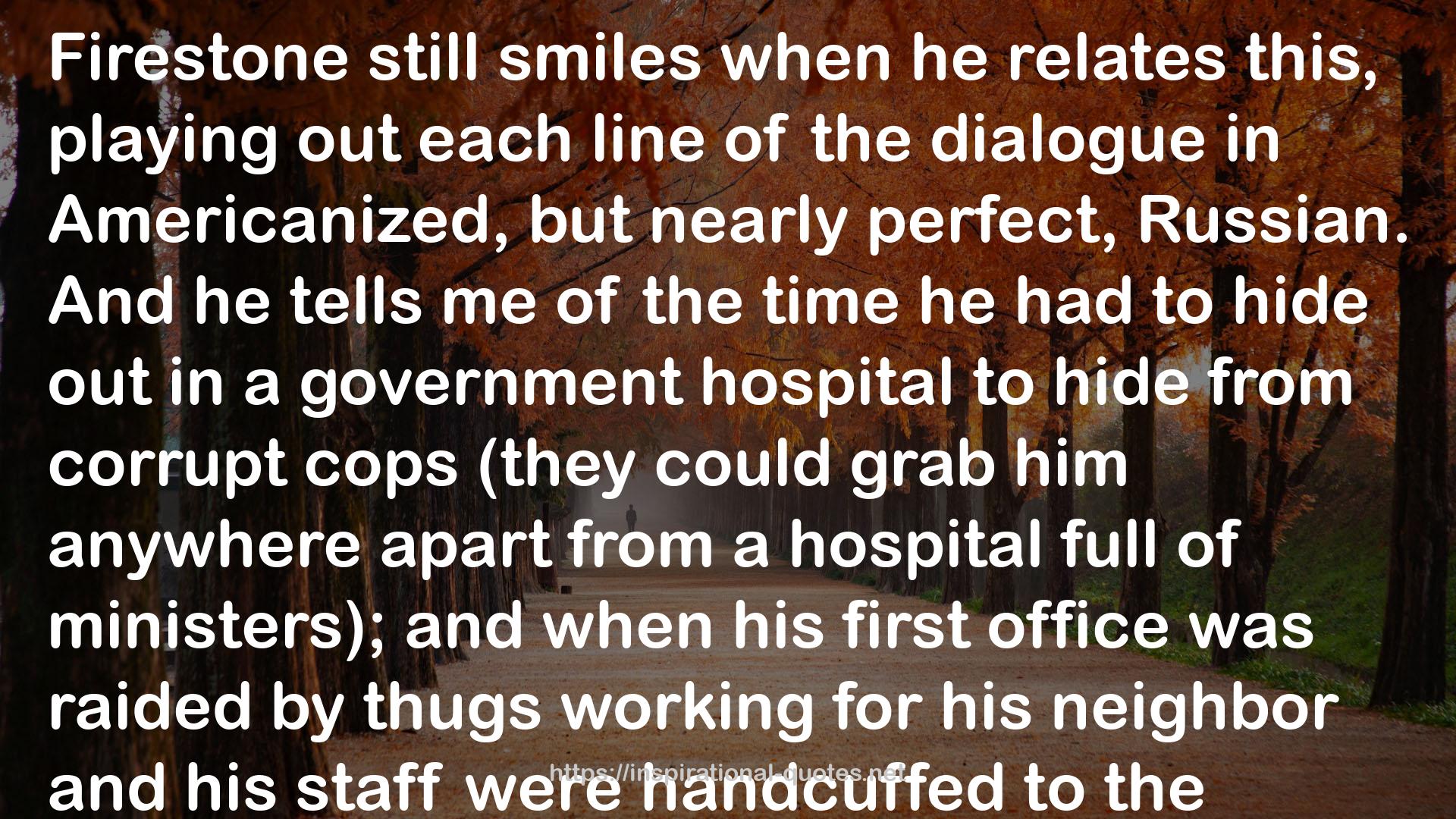54
" The weekly news round-up show is on. The well-dressed presenter walks across the well-made set and into shot, briskly summing up the week’s events, all seemingly quite normal. Then suddenly he’ll twirl around to camera 2, and before you know it he’s talking about how the West is sunk in the slough of homosexuality, and only Holy Russia can save the world from Gay-Europa, and how among us all are the fifth columnists, the secret Western spies who dress themselves up as anti-corruption activists but are actually all CIA (for who else would dare to criticise the President?), while the West is sponsoring anti-Russian ‘fascists’ in Ukraine and all of them are out to get Russia and take away its oil, and the American-sponsored fascists are crucifying Russian children on the squares of Ukrainian towns because the West is organising a genocide against Us Russians and there are women crying on camera saying how they were threatened by roving gangs of Russia-haters, and of course only the President can make this right, and that’s why Russia did the right thing to annex Crimea, and is right to arm and send mercenaries to Ukraine, and that this is just the beginning of the great new conflict between Russia and the Rest. And when you go to check (through friends, through Reuters, through anyone who isn’t Ostankino) whether there really are fascists taking over Ukraine or whether there are children being crucified you find it’s all untrue, and the women who said they saw it all are actually hired extras dressed up as ‘eye-witnesses’. "
― Peter Pomerantsev , Nothing Is True and Everything Is Possible: The Surreal Heart of the New Russia
57
" Surkov himself is the ultimate expression of this psychology. As I watch him give his speech to the students and journalists, he seems to change and transform like mercury, from cherubic smile to demonic stare, from a woolly liberal preaching "modernization" to a finger-wagging nationalist, spitting out willfully contradictory ideas: "managed democracy," "conservative modernization." Then he steps back, smiling, and says: "We need a new political party, and we should help it happen, no need to wait and make it form by itself." And when you look closely at the party men in the political reality show Surkov directs, the spitting nationalists and beetroot-faced communists, you notice how they all seem to perform their roles with a little ironic twinkle.
Elsewhere Surkov likes to invoke the new postmodern texts just translated into Russian, the breakdown of grand narratives, the impossibility of truth, how everything is only "simulacrum" and "simulacra" . . . and then in the next moment he says how he despises relativism and loves conservatism, before quoting Allen Ginsberg's "Sunflower Sutra," in English and by heart. If the West once undermined and helped to ultimately defeat the USSR by uniting free market economics, cool culture, and democratic politics into one package (parliaments, investment banks, and abstract expressionism fused to defeat the Politburo, planned economics, and social realism), Surkov's genius has been to tear those associations apart, to marry authoritarianism and modern art, to use the language of rights and representations to validate tranny, to recut and paste democratic capitalism until it means the reverse of its original purpose. "
― Peter Pomerantsev , Nothing Is True and Everything Is Possible: The Surreal Heart of the New Russia
59
" If the West once undermined and helped to ultimately defeat the USSR by uniting free market economics, cool culture, and democratic politics into one package (parliaments, investment banks, and abstract expressionism fused to defeat the Politburo, planned economics, and social realism), Surkov’s genius has been to tear those associations apart, to marry authoritarianism and modern art, to use the language of rights and representation to validate tyranny, to recut and paste democratic capitalism until it means the reverse of its original purpose. "
― Peter Pomerantsev , Nothing Is True and Everything Is Possible: The Surreal Heart of the New Russia

